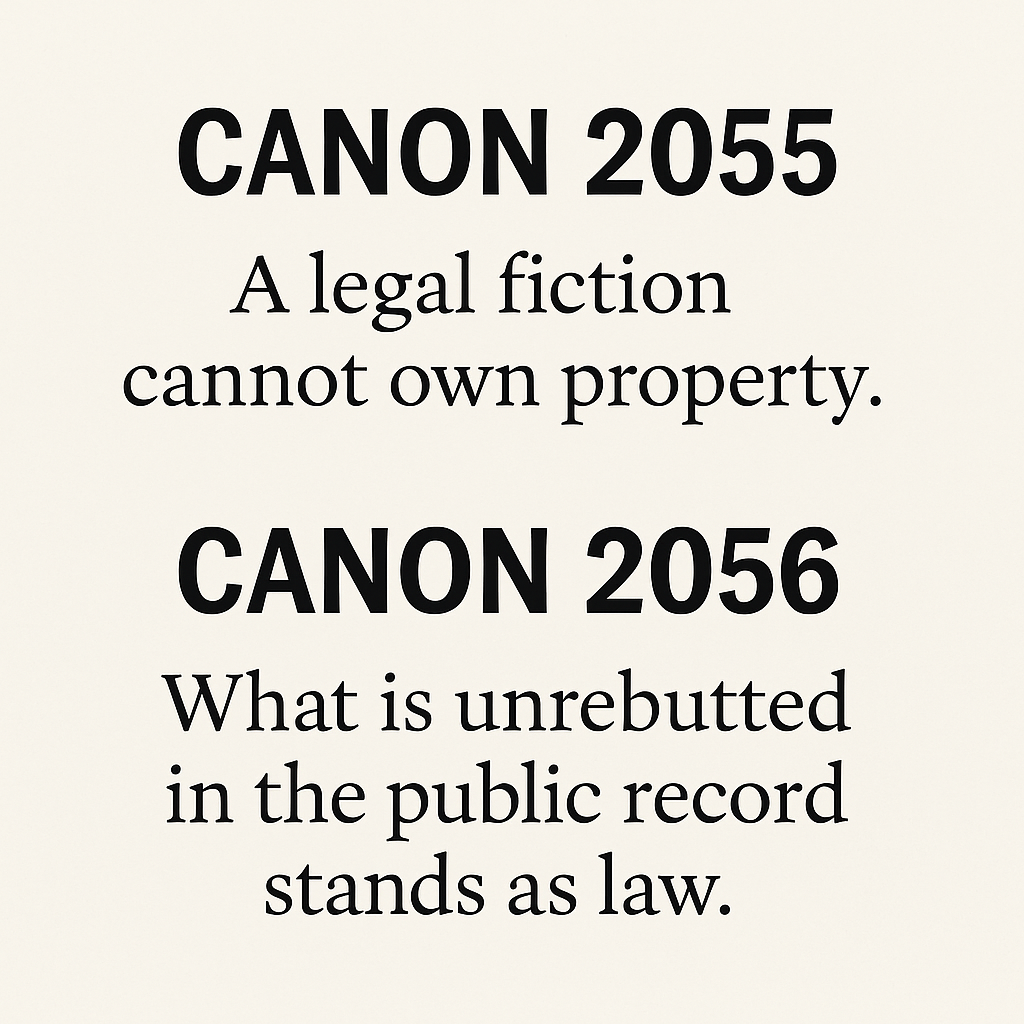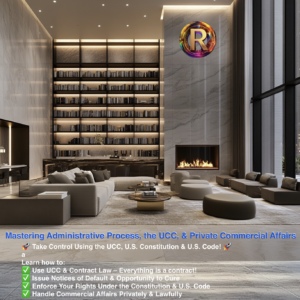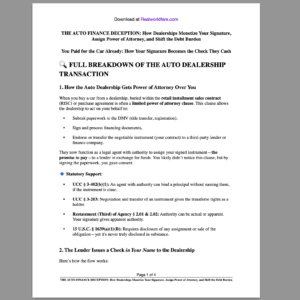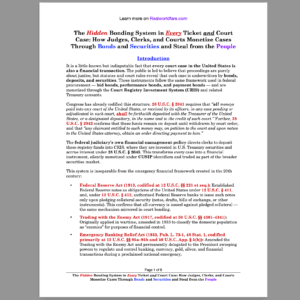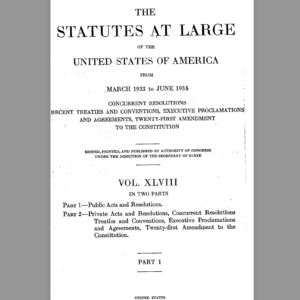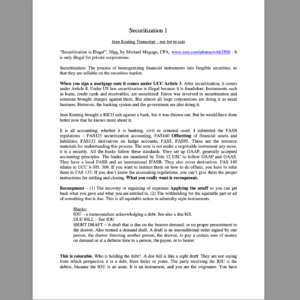Introduction
While not found in statutory codes like the United States Code or your local state legislature’s books, Canon 2055 and 2056 are very real and foundational. They are not “fake,” “made up,” or “sovereign citizen rhetoric.” Instead, they are part of the unwritten system of trust law, equity, and ecclesiastical-commercial jurisdiction that undergirds nearly every legal action in the modern commercial world.
What Are Canon 2055 and Canon 2056?
Canon 2055 — “A legal fiction cannot own property.”
This canon affirms the ancient and inviolable principle that only a living man or woman can truly own property. Legal fictions—corporations, trusts, artificial persons (e.g., the ALL CAPS NAME)—can hold, manage, or possess property, but only on behalf of a real beneficiary.
In legal terms:
-
The ALL CAPS NAME (e.g., JOHN DOE) is a constructive trust created by the government.
-
That trust is incapable of ownership; it is an ens legis (a creature of law) that must be administered.
-
If no living man steps forward to claim the estate as executor or beneficiary, then the State steps in as trustee by default, managing your affairs as if you are legally dead or incompetent.
This is the bedrock of estate and trust law.
Canon 2056 — “What is unrebutted in the public record stands as law.”
This canon codifies a core rule of commerce and administrative law: that silence is acquiescence, and unrebutted claims become fact in law.
If a presumption exists—such as:
-
You are a “U.S. citizen” (subject),
-
You are a taxpayer or debtor,
-
You reside in a federal zone,
…and you do not rebut this publicly or administratively, the system will treat it as accepted truth. Your failure to object becomes consent in law.
This is how colorable jurisdiction is maintained—not through overt force, but through presumed consent.
Why Canon 2055 & 2056 Are Real
These canons operate within higher jurisdictions—primarily:
-
Ecclesiastical law (from which all Western commercial and admiralty systems descend),
-
Trust law, and
-
The maxims of equity and commerce.
They are invoked every day in courtrooms and government procedures, even if not by name.
Examples:
-
When a court refuses to acknowledge your equitable title because you haven’t rebutted the legal presumption.
-
When the IRS collects a tax debt by treating you as the legal fiction because no living man has rebutted the presumption of liability.
-
When the DMV registers your car under the trust name (ALL CAPS) because you haven’t reclaimed it.
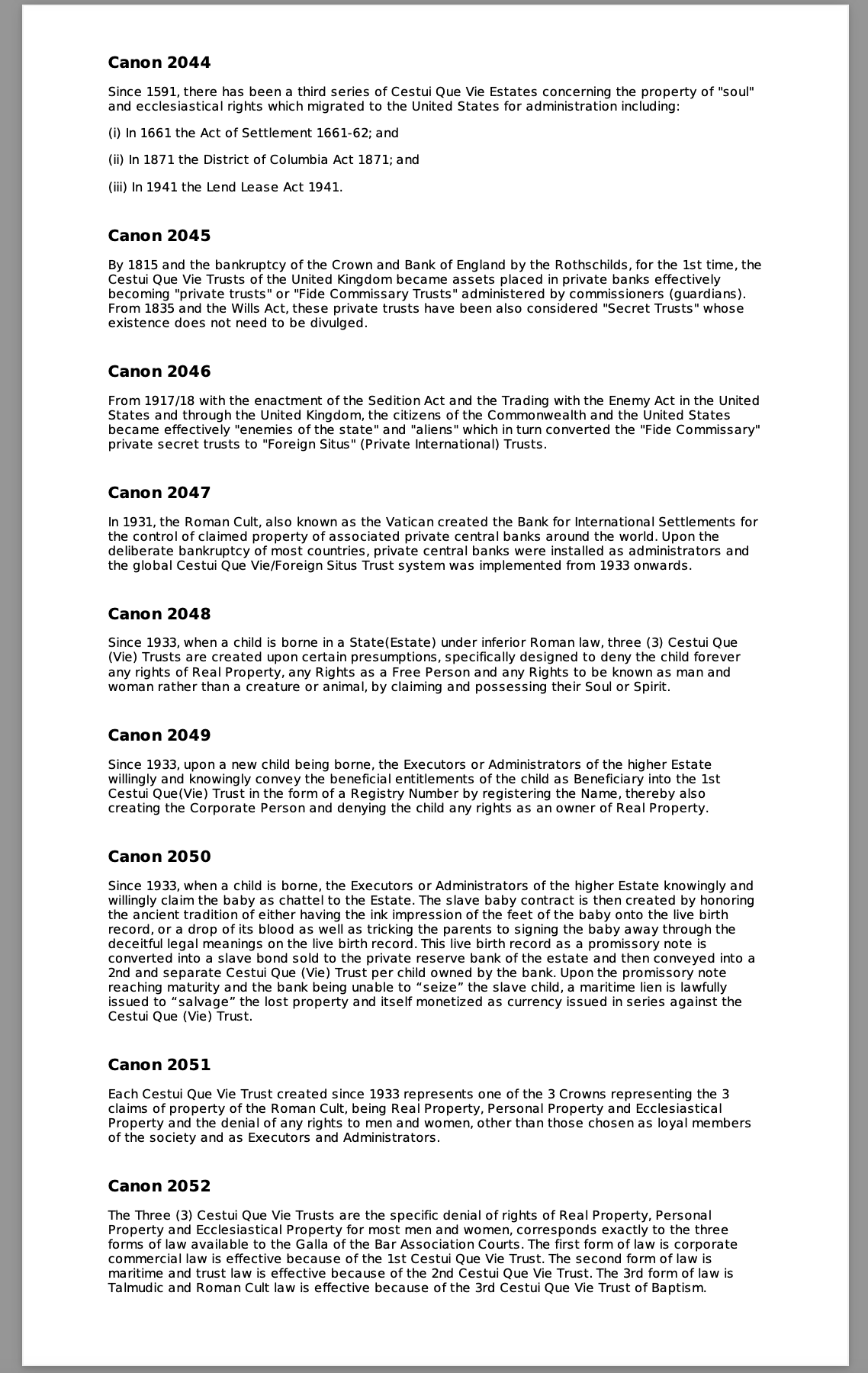
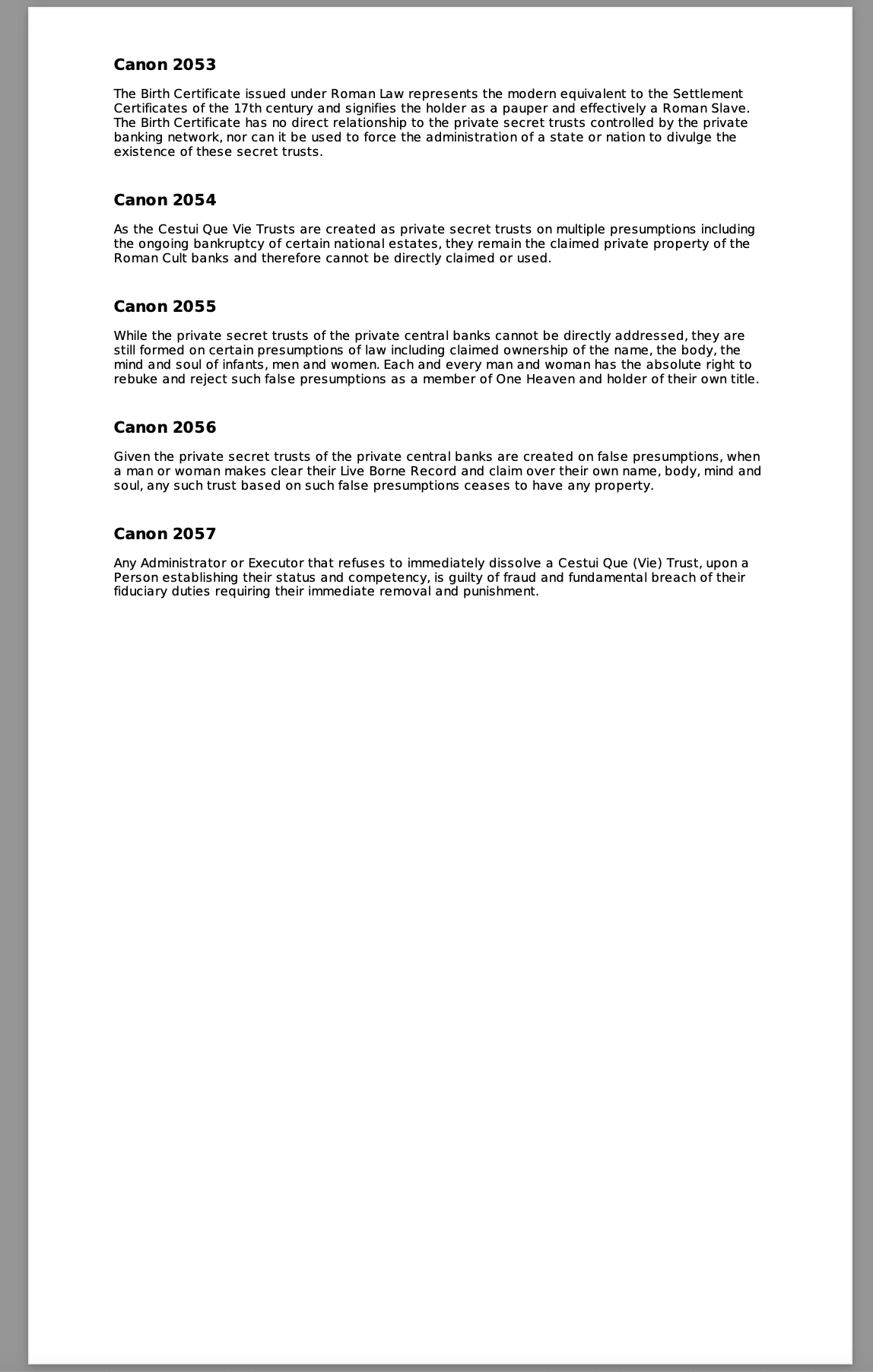
Legal Maxims That Confirm Canon 2055 & 2056
These are not fringe ideas—they are core tenets of the legal system:
🔹 Maxims Supporting Canon 2055:
“Fictions arise from the law and not law from fictions.” – Legal maxim
➤ Meaning: A legal fiction (like the ALL CAPS trust) cannot become greater than the real man who created it.
“A thing which has no owner is the property of no one.” – Blackstone’s Commentaries
➤ If you do not claim your trust/estate, the State holds it by default as if abandoned.
“He who fails to assert his rights has none.” – Legal principle
➤ If you do not step forward as executor, the State acts as trustee.
🔹 Maxims Supporting Canon 2056:
“Silence is acquiescence.” – Tacit Procuration Doctrine
➤ If you don’t rebut what’s on the record, it is treated as accepted truth.
“Truth stands unrefuted.”
➤ If you file an affidavit or notice and it is not rebutted point-for-point, it becomes the controlling fact in law.
“He who does not deny, admits.” – Black’s Law Dictionary, estoppel principles
➤ Courts operate administratively under the idea that failing to rebut is agreement.
Application in Real Law
While Canon 2055 and 2056 may not appear in the U.S. Code, the system uses these principles constantly. Here’s how:
-
Canon 2055 is why the ALL CAPS NAME holds title to your bank accounts, registrations, and licenses—but you, the living man, are treated as liable unless you claim the estate.
-
Canon 2056 is why you must file UCC-1 financing statements, affidavits of status, or notices of beneficial ownership to rebut legal presumptions. If you do not, those presumptions stand as binding.
They are foundational to:
-
UCC Article 9 (Secured Transactions)
-
IRS procedures
-
Probate and trust law
-
Admiralty jurisdiction
-
Color of law enforcement
Conclusion
Canon 2055 and 2056 are not fictional or “made up.” They represent the private rules of the game—the ones not taught in public schools, universities, or even law school.
They are not statutory because they govern the statutory realm itself.
-
Canon 2055 reminds you to reclaim control over the legal fiction and its estate.
-
Canon 2056 tells you the rules of engagement: if you don’t rebut the record, you’re agreeing to it.
Rejecting these canons is to remain trapped in the public jurisdiction, subject to endless presumptions and liabilities. A wise man studies them, invokes them, and uses them to assert dominion over his estate.
